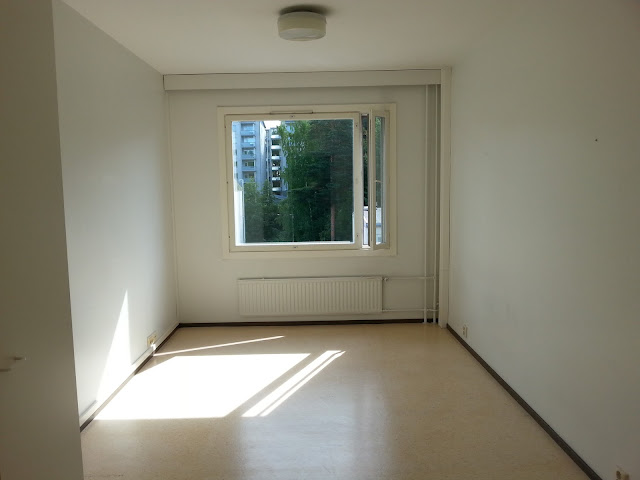About differences between Japanese and Western Families
Virtanen Essi
FKF Jap
realia 1
2016.12.8
essay 2
3. Essay, A. Japanese family: How do Japanese
families differ from Finnish/ Western/ (Your own country) families? Compare and
discuss the roles of each family member and analyze the underlying reasons why
Japanese families are the way they are.
About differences between Japanese and
Western Families
I watched a video of Masaki -5 years
old and her little sister Saiko -2 years old. They got a task where they had to
successfully buy some groceries and return home all by themselves (https://www.youtube.com/watch?v=e5k5XTZy0rA). It’s surprising how well these Japanese
kids behaved towards each other and towards other people they met even without
their parents around. Masaki cried for his mom for a while but her sister Saiko
almost took over the role of their mother by comforting her brother and making
sure everything got done and taken care of. It is shocking how strongly these
children already represented the behaving norms of Japanese society. Would
Western coeval kids have behaved just as well and been so controlled? I don’t
think so, but why?
Already before children learn to speak they start learning some of their
own culture’s rules and norms. Many researchers point out that the more
important the skill is within a certain culture, the sooner a child is likely
to develop it. The importance of restricting one’s emotions, empathy and group
harmony are some of the most important values in Japanese culture. Therefore,
Japanese children generally develop those skills sooner than most of the
Western children who on the other hand develop self-recognition skills earlier
than Japanese children. In Western culture the importance of an individual,
independence and assertiveness are often more valued skills to have instead.
The first things children learn are of course coming from home and
family members. In Japan mother is almost without an exception responsible of teaching her children
everything they need for becoming a well-raised-adults who know their place in
a Japanese society. It’s been considered mothers responsibility ever since
Meiji period when women started to receive equal education compared to men. For
a girl that means a good education and learning to do all household chores
properly so she can become a good wife who takes care of her future husband and
raises children just like her mom. For a boy that means a good education also
but unlike girls, boys aren’t expected to help around the house at all or just
very rarely. Boys need to concentrate on their education to find a good job, do
well at work and find a proper future wife to replace their mother. Arranged
marriages are still common especially for those men who find their work career
more important and don’t want to waste time finding a wife. In Japan that kind
of method is still possible due to strong will to put society before own life.
In Western countries that would be impossible nowadays because people concentrate
on their own happiness way more than Japanese people.
Many
western people find Japanese style of separating children into girls and boys
unfair and unnecessary. Looks like it is trending right now in Western
countries to treat girls and boys equally to the point not even calling
children “boys” or “girls” anymore. Not everyone of course
but the point is that this kind of mindset would be very difficult to most
Japanese people and society to accept as extensively as Western people and
society already have done. More and more Japanese woman and men are acting
against the traditional way but it’s still very rare. In Japan making a
difference between girls and boys is constantly pointed out and it isn’t
considered as a problem at all.
By
looking at Japanese family hierarchy, dad is usually the head of the family.
This tradition has roots way back in Japanese history slowly starting to
develop during Nara- and Heian period. Ie-system established the oldest man in
the family to be the head of the family in Muromachi period. If a dad takes his
children out to play in a park would Japanese mothers with their children stare
him for a quite long time. Men usually have the leader role in Western families
as well so it is somehow similar with Japanese style but it’s not so weird of a
thing to see a dad with his children. All in all, men have the head roles in
families in both Japanese and Western cultures even though women and men
becoming more equal recently especially in Western countries.
In
Japanese families, youngest children are on the bottom of a family hierarchy.
They are expected to behave respectfully towards older siblings. Western style
is to treat siblings more equally. Children should always respect their parents
in Japan and due to that Western people find Japanese parents very strict and
even cold because emotions aren’t expressed that much. Parent’s decisions are
respected and sometimes kids won’t say anything even though they don’t like
what their parents decide. Western kids are definitely a lot more free when it
comes to speaking and behavior towards elder people. That isn’t always a good
thing judging by what I have seen but I won’t say one way is better than
another. Both Western and Japanese style families have something good and bad
in them.
Recourses:
https://www.youtube.com/watch?v=e5k5XTZy0rA
, also part 2, 5.12.2016 22:33
http://howibecametexan.com/2016/01/25/why-are-japanese-kids-are-so-calm-parenting-in-japan-vs-america/
5.12.2016 23:45
https://www.nakasendoway.com/the-japanese-family-system/
6.12.2016 00:24



Kommentit
Lähetä kommentti